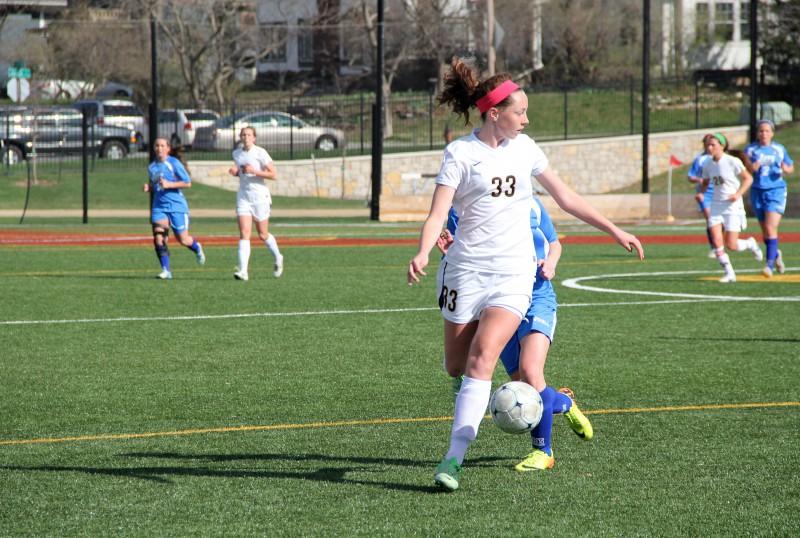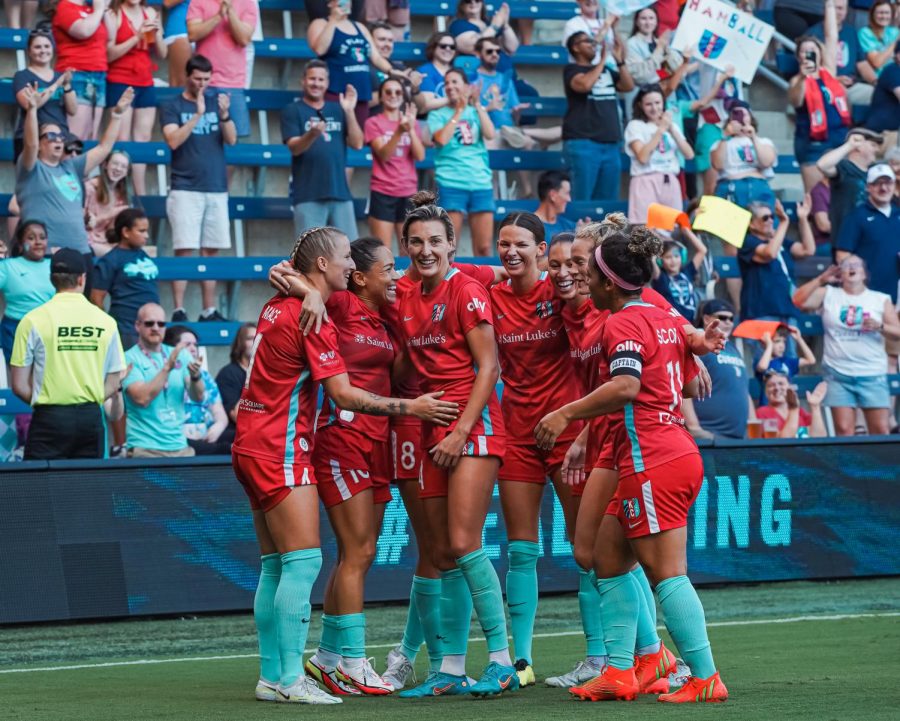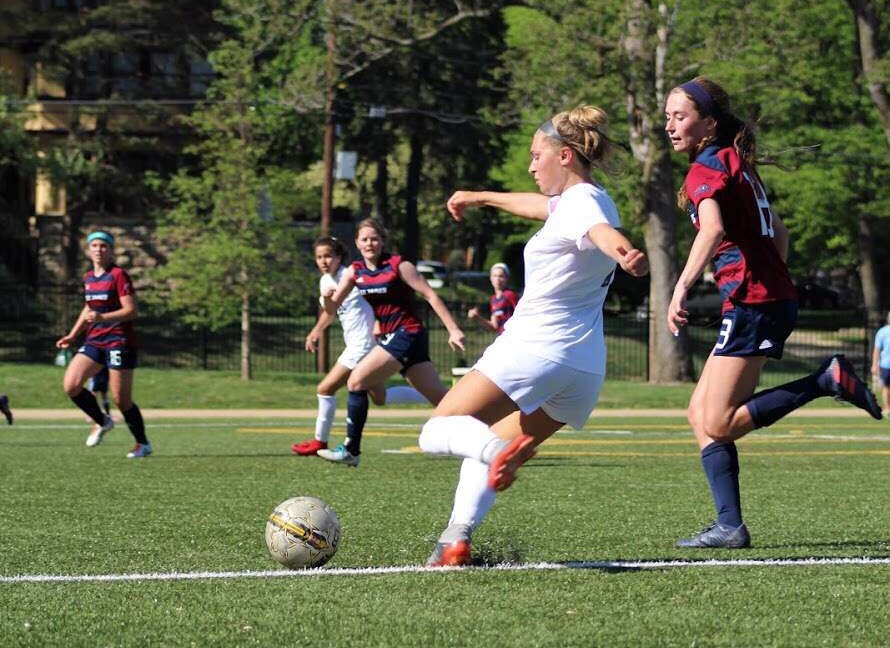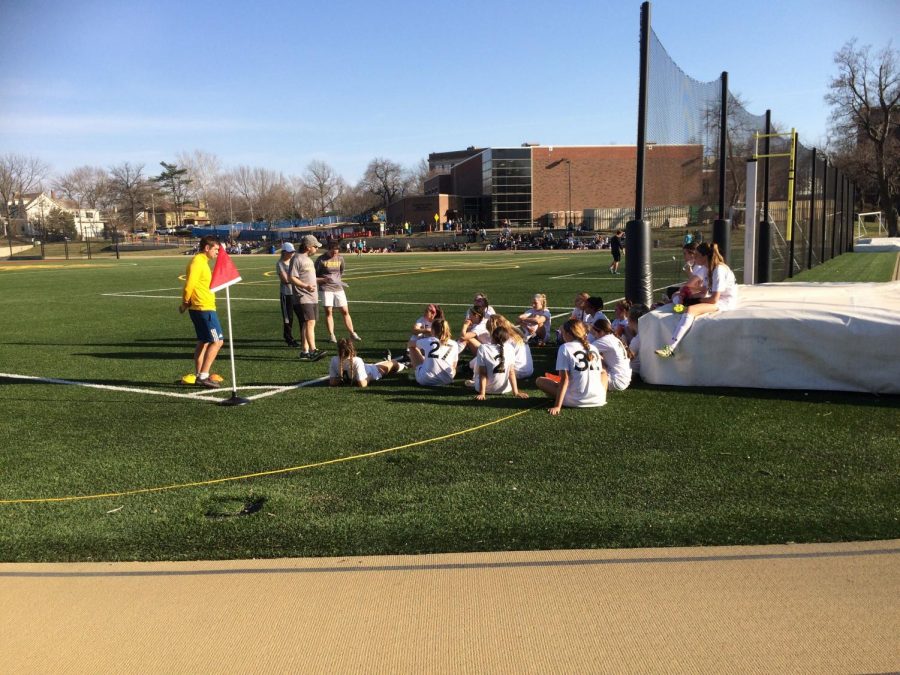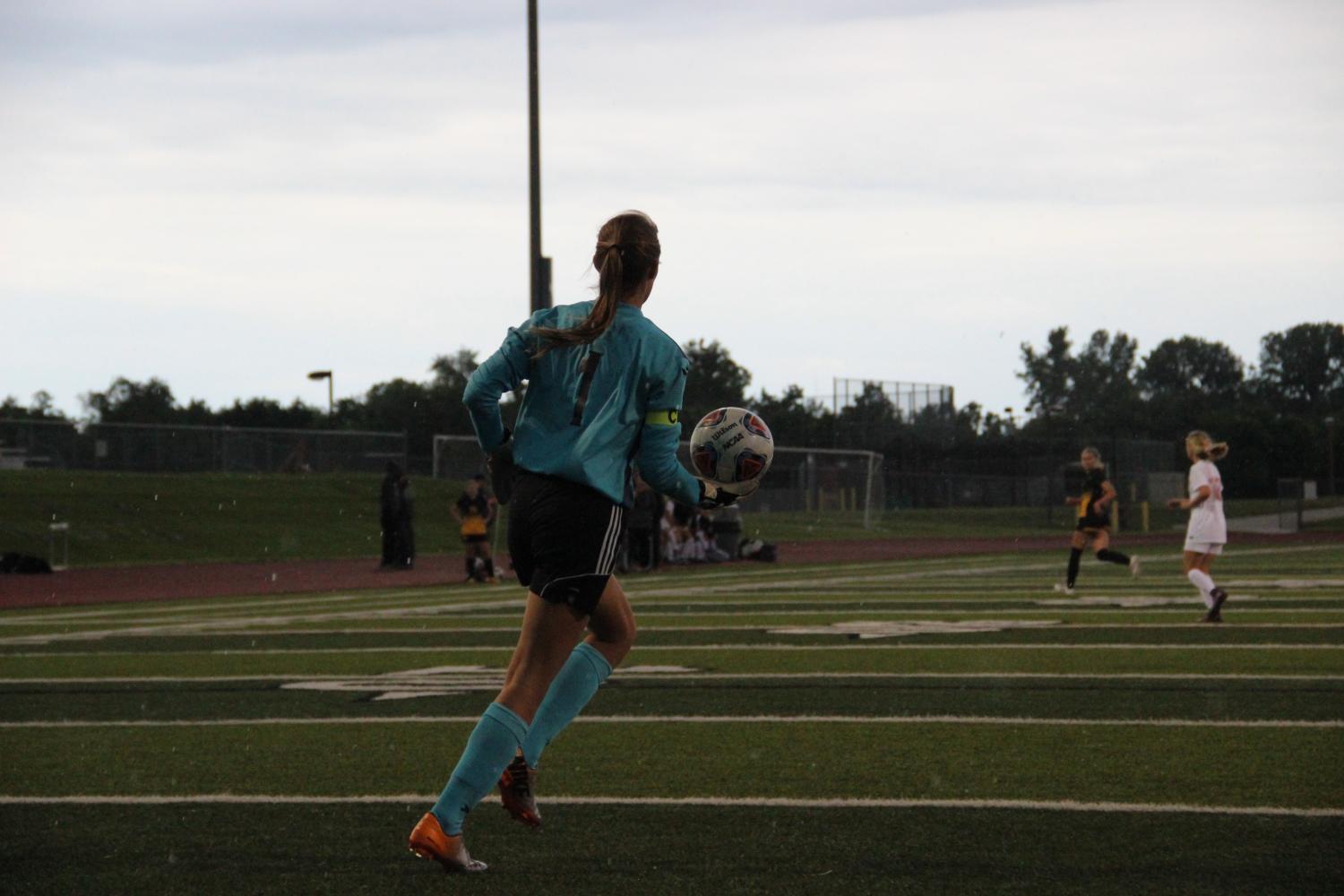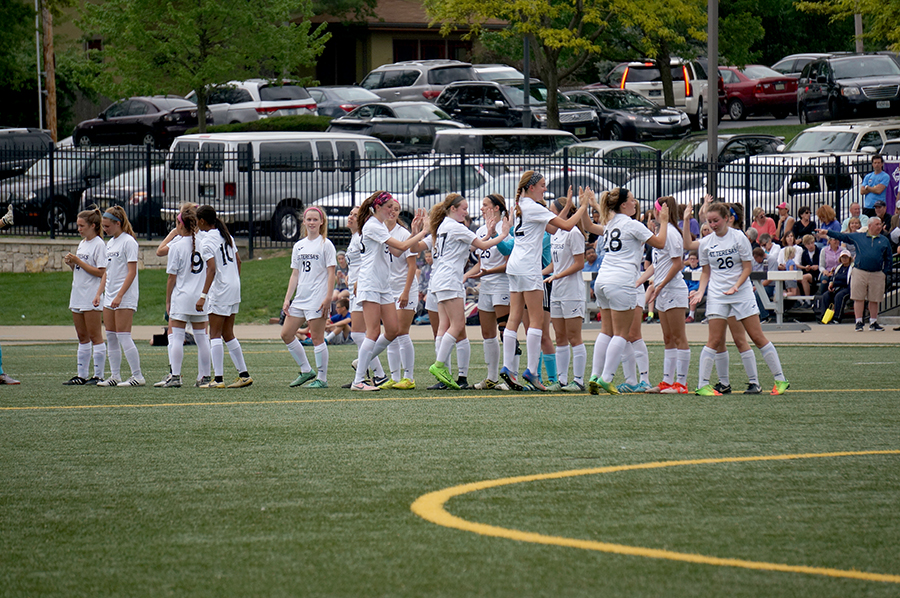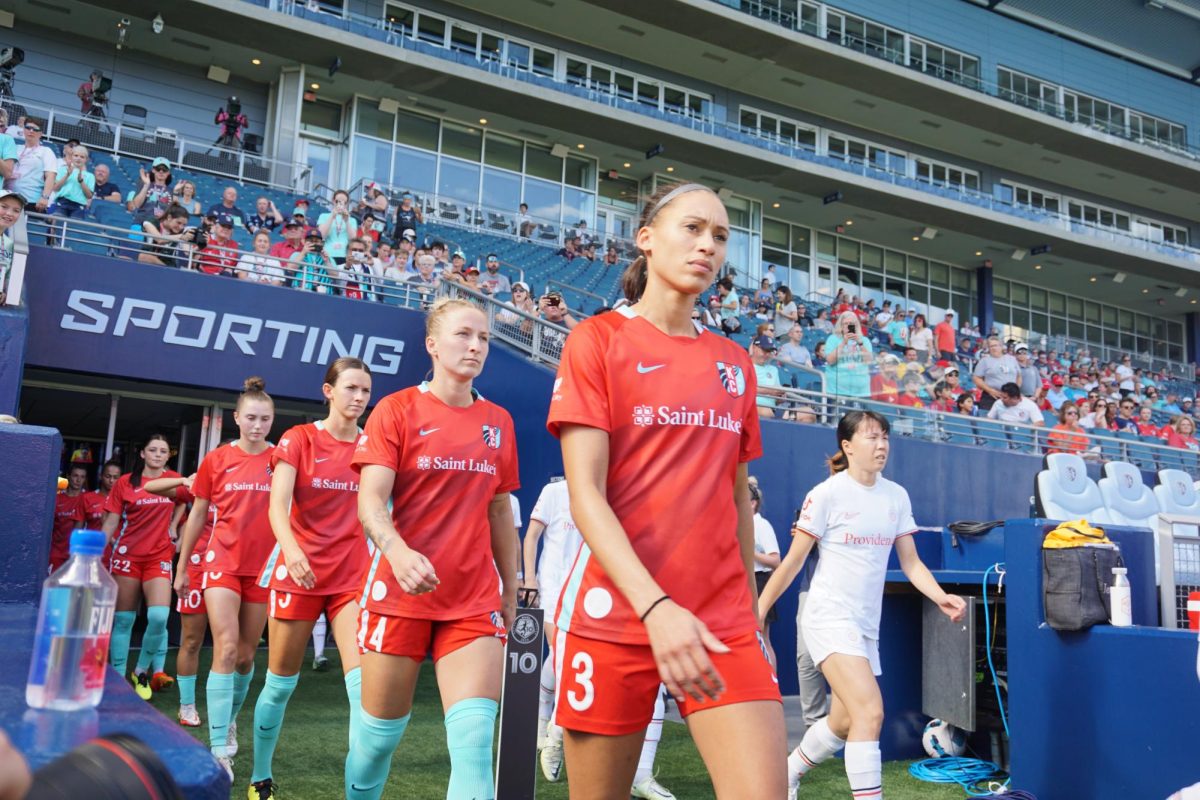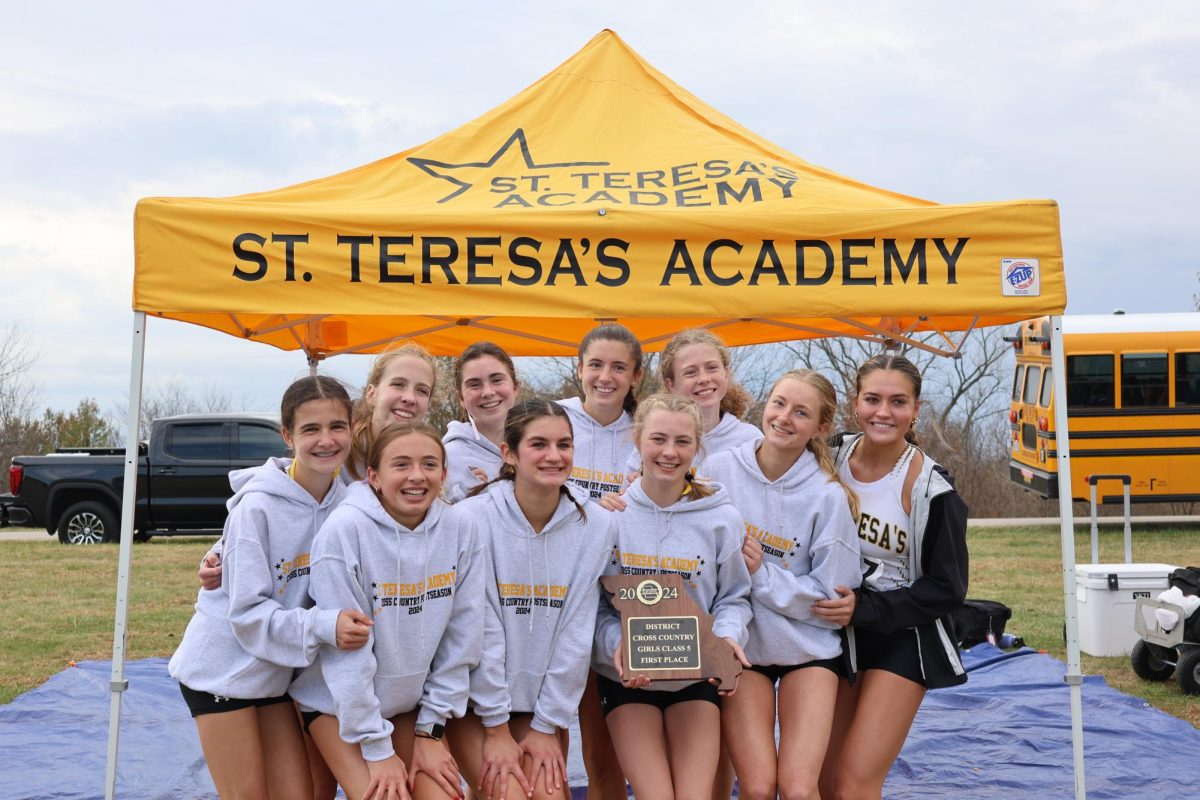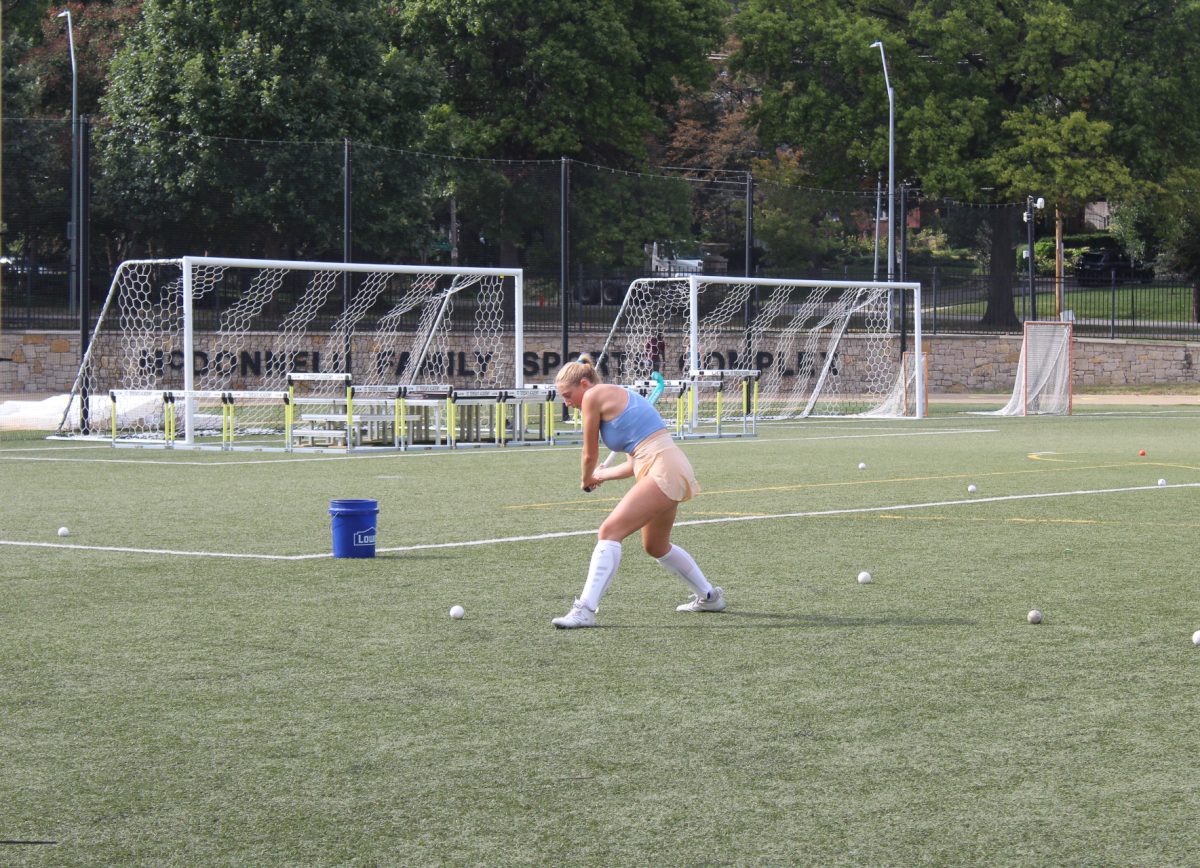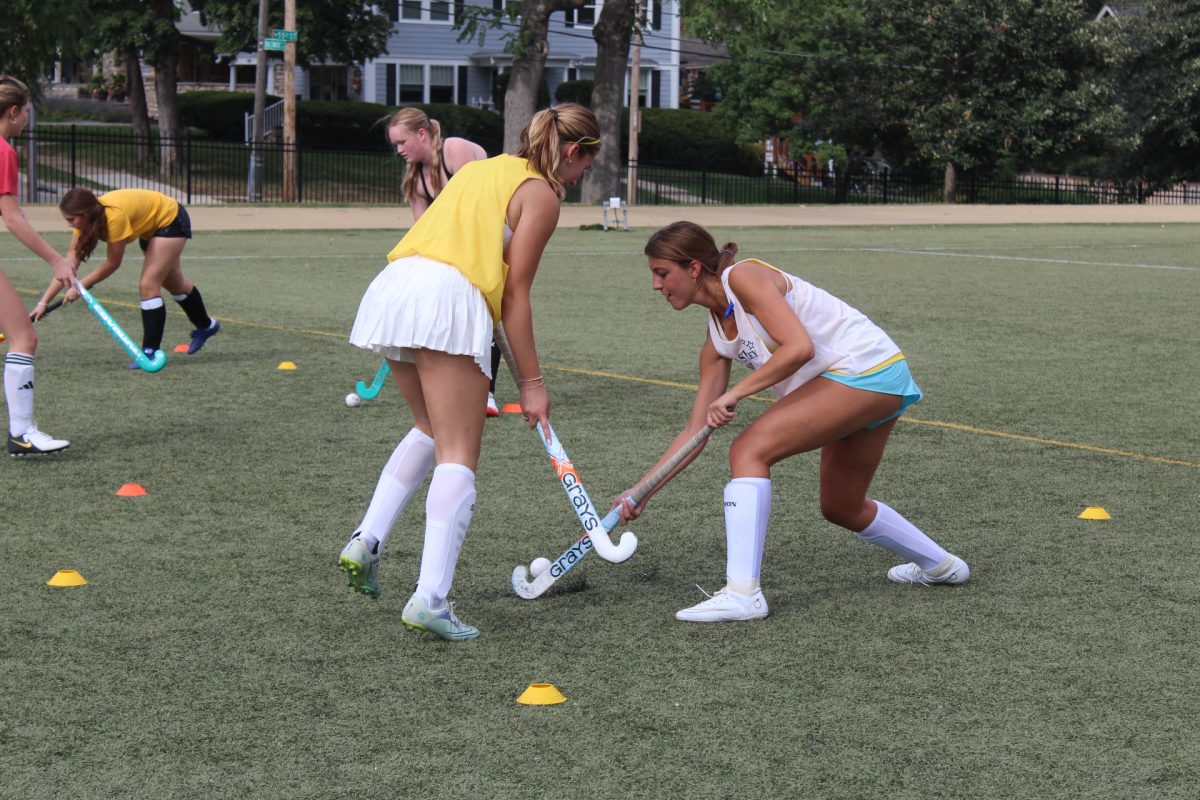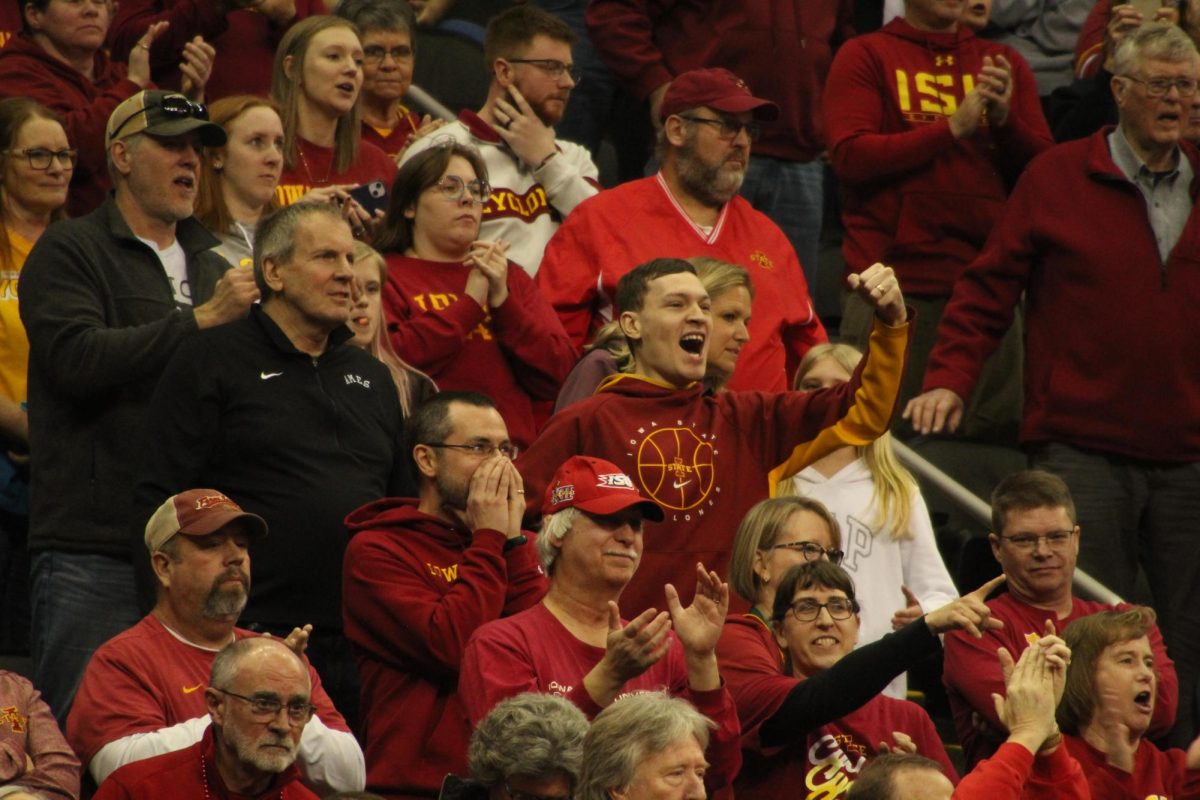by Anna Bauman
 Sophomore Abby Small verbally committed to play soccer for the University of Missouri Kansas City March 20. UMKC’s offer includes a full-tuition scholarship in return for Small’s agreement to play on the soccer team.
Sophomore Abby Small verbally committed to play soccer for the University of Missouri Kansas City March 20. UMKC’s offer includes a full-tuition scholarship in return for Small’s agreement to play on the soccer team.
Small is one of many young girls being recruited during their freshman or sophomore years of high school to play at the collegiate level. Already, five of Small’s club teammates have committed to UMKC as well. According to the National Collegiate Scouting Association, 24 percent of female soccer players being recruited by colleges commit early, compared to eight percent of men’s soccer players and four percent of football players.
According to an article in the New York Times, coaches tend to recruit young female athletes because statistically, women mature earlier than men. But the large number of early female recruits is also partially due to Title IX, the law requiring equal spending on male and female collegiate athletic programs. In 1990, there were 82 women’s Division I soccer programs in the nation; that number has since risen to 332. An increase in the number of women’s athletic scholarships has left coaches scrambling to fill the spots. And college recruiters must start young or else they will miss out on opportunities that other colleges will take advantage of if they don’t.
Despite the frenzy of recruiting young players, this type of recruitment is technically prohibited by the National Collegiate Athletic Association, or NCAA. According to official recruiting rules of the NCAA, the formal recruitment period begins sophomore year of high school when a player is allowed to receive pamphlets about camps in the mail from a school or call the coach; however, no direct contact from the coach is allowed. As a junior, players can begin to receive information via mail from the coach and are allowed one phone call per week from the coach beginning July 1st after junior year. A player cannot officially commit to a college until the spring of senior year when they can sign a binding National Letter of Intent. However, before that, a non-binding verbal commitment is allowed at any time.
Loopholes in the NCAA rules allow coaches to begin recruiting players early, some before high school. College coaches are not allowed to directly call a player until junior year, so instead they contact the coach of the player and from there the player can make contact with the coach as often as she wants.
This is how Small was able to commit early for UMKC.
“My coach has a really good relationship with the coach [at UMKC}, so it was easy for me to talk to my coach and then have him talk to the [UMKC] coach,” Small said.
According to Small, she received offers from other colleges including the University of Arkansas, Florida Gulf Coast, and the University of Vanderbilt. The coaches from these schools and others scouted out players at national tournaments, like ones that Small competed in in Florida with her club team.
Small has wanted to continue her athletic career in college ever since she “fell in love” with soccer at an early age.
“I feel like I would be bored without [soccer] because it’s such a big part of my life that I wouldn’t have anything to do,” Small said. “It’s just really fun for me.”
STA varsity teammate Leigh Campbell agrees that Small will do well at the collegiate level.
“This year Abby has really stepped up for the team in the starting left back position,” Campbell said. “She has worked hard to be a competitive player and certainly deserves to play at the collegiate level.”
According to Small, out of all the schools recruiting her, UMKC was the right choice for her. At first its close proximity to home was a downside, but Small decided she liked the metropolitan feel of the campus.
“I was originally dead set against going there but after I went on a visit and met all the girls on the team it was the perfect fit,” Small said.
Even though she will not be attending UMKC until the fall of 2016, Small said she feels “confident” making the decision about where to attend college as only a sophomore.
“I knew [UMKC] is where I wanted to be,” Small said. “It was the best fit for me and I was not going to find anything better. I just felt comfortable with [my decision].”
Small feels more secure knowing that she has that major decision out of the way.
“This is the time I can focus on getting better as a player before I get [to UMKC] without having to worry about everything being perfect to find that college [to play soccer for],” Small said.



